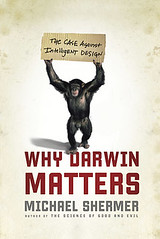In addition to
Delivery Agent (see prior post on
Dwight Schrute Bobbleheads), here are seven other investments Bessemer has recently made on our
Television 2.0 road map that address the
rapidly changing landscape of video entertainment (in no particualr order):
1.
IAG ResearchLast week we
announced our
investment in a research/information service that complements Nielsen data with a new kind of measurement: rather than count households in which an exposure occured, IAG measures the quality of the exposure by surveying hundreds of thousands of TV and movie viewers every month on brand awareness, recall, and preference. By subscribing to IAG data feeds, brands can intellgiently allocate media budgets among the emerging ad platforms like web players, mobile video, and brand integration, precisely comparing each format's efficacy to the traditional 30-second spot. IAG subscribers include Toyota, Lexus, Nissan, GM, DaimlerChrylser, Kia, Verizon, Sprint/Nextel, American Express, Johnson & Johnson, P&G, Paramount, Sony, Merck, Pfizer, the NFL as well as the leading networks including NBC, CBS, FOX, WB, ESPN, Bravo, USA, Lifetime, TBS, TNT, and Food Network.
2.
NextMediumI recently joined the board of NextMedium, the emerging marketplace for
Audited Brand Integration. NextMedium
debuted its platform last month at the TV Upfronts, where demand from advertisers
exceeded expectations. With the
decline of the 30-second spot, the advertisers need a new medium for reaching broad audiences with visual exposures affiliated with content and characters that speak to the consumer. Integrating brands into TV, movies, and music videos offers them exposure that works regardless of whether the video is viewed live, on Tivo, through iTunes, on a phone or in a re-run. And the studios/networks need the new revenue stream to subsidize production as traditional ad revenues decline. (Click
here to see Cisco's brand integrations in Fox's series 24, especially
this one, where Chloe tells Division Chief that the terrorists couldn't hack CTU's system because "Cisco networks are self-defending.")
 All indications
All indications from advertisers and producers point to audited brand integration as a
hypergrowth market. (Indeed, roughly a third of IAG's revenue comes from their In-Program service.)
NextMedium takes product placement (in which products are supplied free for their production value) to the next level by creating a
reliable, scalable, and measurable system for selling targeted exposures to brands. Producers propose integrations, advertisers bid for them, and the director selects the brand, incorporating creative concerns. Most importantly, NextMedium buyers pay for performance by bidding a price that varies based on exposures, using audited Nielsen data. I like to think of it, of course, as the Google of branded integration.
3.
WorkMetroAs Tivo kills commercials, the cable companies also seek alternative revenue streams. So Comcast, Cox and Time Warner are getting help from WorkMetro (where I have also recently joined the board), which launches localized job listing sites promoted by their cable partner.
Having invested early in Hotjobs, I'm well aware of the competition at the high end, but local job seekers and employers, who don't necessarily use PC's all day, have mostly remained loyal to their local newspapers, where job listings typically generate the profit. Now WorkMetro is taking a bite out of that market, bringing the benefits of the internet and video-on-demand job listings to TV audiences.
4.
GoTV GoTV
GoTV is the largest producer of made-for-mobile video entertainment. Sprint, Cingular, Nextel, Boost (and soon Verizon and many others) carry channels from GoTV offering
news,
sports,
music,
comedy, and more on demand, Tivo style. GoTV is the mobile distribution partner of ESPN, ABC (Lost, Alias...), Univision, iFilm, Sony, and others. Most of the content is produced in-house by GoTV's studio, led by Dan Tibbets who invented the "mobisode" while at Foxlab. The company's CEO is Dave Bluhm, a Bessemer EIR whom our mobile investor
Ron Elwell recruited to run the company.
GoTV's servers automatically scale down the frame rate to suit your phone, but by the end of next year, CTIA projects that 22% of handsets in the US will be 3G and video-capable.
5.
Siano Mobile SiliconTo serve consumers who want live TV, phone manufacturers are increasingly designing in MDTV receivers from
Siano, whose all-CMOS chips are multi-band and multi-standard (DAB, T-DMB, DVB-T , DVB-H) for global coverage.
6.
RevverSkype investors Rob Stavis (Bessemer) and
Howard Hartenbaum (Draper Richards)
funded Revver, an advertising network that embeds ads within user generated videos, sharing revenue with the creator.
Here's a recent favorite playing on the site.
7.
Access Retail Entertainment
Access produces MTV-style entertainment in a venue without Tivo's ad-skipping for a growing network of over 5,000 retailers including Journeys, Underground Station, Vanity and Macy's, reaching over 40M youth each month. Cingular, Samsung, Wrigley's and others find that Access generates better brand recall than TV spots.



 19th century cryptographer
19th century cryptographer 
 Having subscribed my entire family to Lifelock (the kids are vulnerable, too), our finances and credit are now protected from identity thieves. Lifelock backs up its service with a guarantee that it will handle any resolution of ID theft, with a
Having subscribed my entire family to Lifelock (the kids are vulnerable, too), our finances and credit are now protected from identity thieves. Lifelock backs up its service with a guarantee that it will handle any resolution of ID theft, with a  1. A psychographic shift in population led to fast adoption of new technologies. It’s just much harder to find someone complaining that the VCR blinks 12:00—in fact it’s hard to find a VCR at all, now that we have Tivo.
1. A psychographic shift in population led to fast adoption of new technologies. It’s just much harder to find someone complaining that the VCR blinks 12:00—in fact it’s hard to find a VCR at all, now that we have Tivo.

 And so the winning recipe today for aspiring entrepreneurs is GET BIG CHEAP. Don’t waste expensive development on untested ideas, and don’t let a fat marketing budget mask a weak value proposition. If instead you tinker your way to scalable organic growth, you’ll have a valuable business on your hands. Don’t worry about how long it takes—just make sure your burn rate is low enough to accommodate several cycles of iteration.
And so the winning recipe today for aspiring entrepreneurs is GET BIG CHEAP. Don’t waste expensive development on untested ideas, and don’t let a fat marketing budget mask a weak value proposition. If instead you tinker your way to scalable organic growth, you’ll have a valuable business on your hands. Don’t worry about how long it takes—just make sure your burn rate is low enough to accommodate several cycles of iteration.

 The success of Dawkins' publication coincides with
The success of Dawkins' publication coincides with 


























